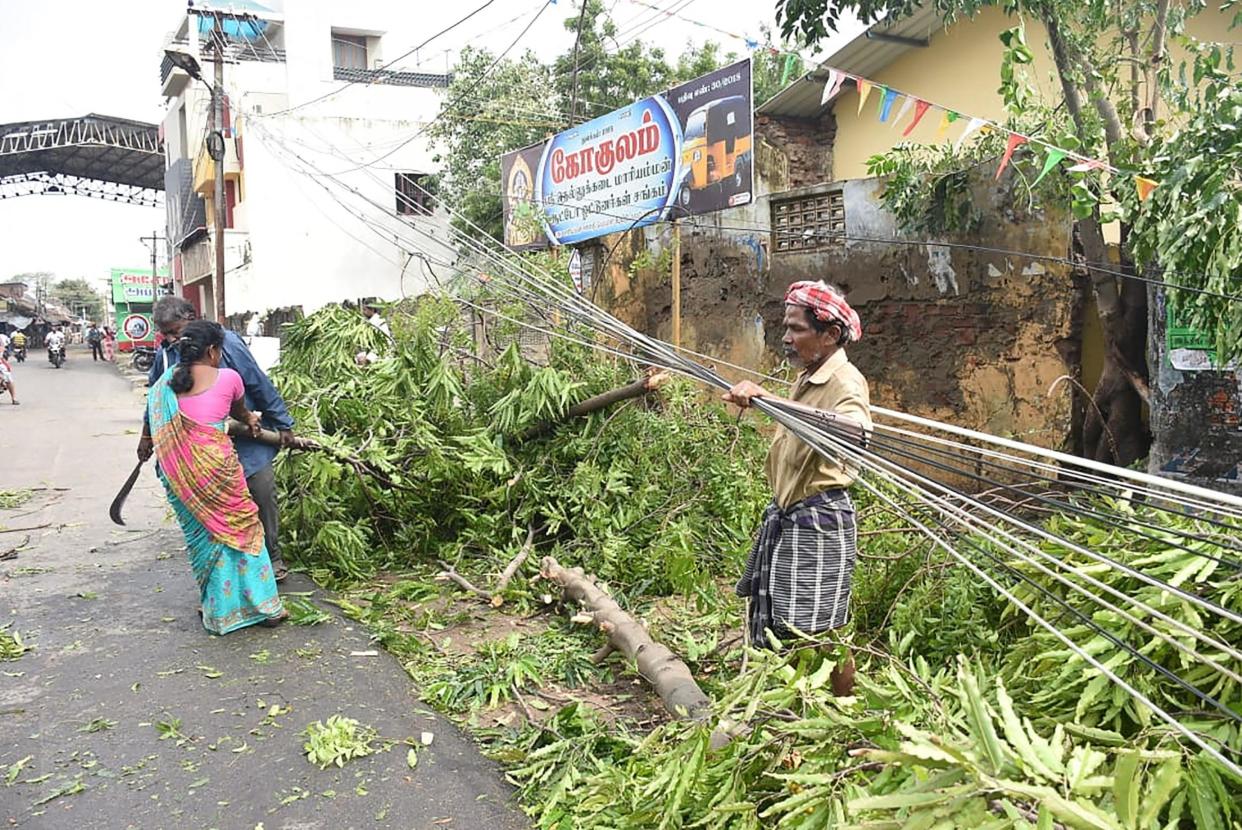Teenage girl killed by Cyclone Gaja after being forced to sleep in hut while menstruating

A teenage girl has been killed by a cyclone in India after being made to sleep in a hut outside her home because she was menstruating.
Her family said the 14-year-old was not able to escape as Cyclone Gaja ravaged the state of Tamil Nadu in southern India on 16 November.
Some villagers told BBC Tamil this was a “wake-up call” as it is common practice to separate girls who are on their periods.
Authorities say the Cyclone has killed at least 46 people in the coastal state – with strong winds pulling up trees and the storm eviscerating more than 80,000 hectares of farm land across 12 different districts.
The family of the girl – who has been identified as S Vijayalakshmi – lives in a house next to the hut but managed to survive the storm.
Her grandmother, S Visalakshi, said they were not able to rescue her because a coconut tree had fallen on the hut.
She said the girl’s parents were aware the storm was arriving but they could not keep her anywhere else because they lived in a coconut grove, far from the rest of the village, known as Anaikudi.
“I told them to take her to a different place. But within hours, the cyclone had struck and we couldn’t move anywhere,” she said.
“We are shattered. When we saw the tree, we lost hope. We waited for villagers to help us remove the tree and pull her out of the hut.”
She said they had rushed her to the hospital but doctors said she had died hours before.
Menstruating is a taboo in great swathes of rural India. Long-standing traditions declare women to be impure when they are on their periods.
In rural India, one in five girls drops out of school after they start menstruating, according to research by Nielsen and Plan India. Of the 355 million menstruating girls and women in the country, only 12 per cent use sanitary napkins.
Some one-third of women and girls in India believe myths about cleanliness and purity mean they are unfairly treated.
Last month, police arrested thousands of people during protests trying to block women of “menstruating age” from visiting a prominent Hindu temple devoted to a celibate deity.
Conservative Hindu groups have prevented women from entering the Sabarimala hill temple in Kerala state – clashing with police and damaging cars and buses. Their action was in defiance of the Supreme Court ruling that lifted a centuries-old ban on women or girls aged from 10 years to 50 from entering the temple.
Women living in Nepal are routinely banished to an outside hut or animal sheds, stopped from taking part in family activities, having contact with men and given less food to eat when they are on their periods due to an ancient practice that remains prevalent despite a ban.
The Hindu custom of isolating women who are menstruating from the rest of the household because they are deemed “impure” – known as “chhaupadi” – was outlawed in 2005 but has remained prevalent in the parts of western Nepal.
Dozens of women and girls have died in Nepal – one of the poorest countries in Asia – in recent years due to the tradition, in spite of concerted campaigns by activists coupled with government measures to banish the practice in the area.
Parbati, 17, told The Independent she was terrified when she got her first period at the age of 12 and felt like she should not tell anyone.
She finally told her sister-in-law and was separated from her family and made to move to a “chhaugoth” – a hut separate from the house where women and girls are forced to live during their periods.
“At first, I felt really, really scared and I could not tell anybody, but later on I told my sister-in-law,” she said. “Why are my family treating me separately? I began to think like that but I also felt scared to say anything.”
She later joined an adolescent girls' group supported by international charity ActionAid where she was educated about sexual and reproductive rights. After telling her parents about the damaging aspects of chhaupadi, she was allowed to remain in the house.
“My parents were happy when I started sleeping inside the house because they also feel I am unsafe in the chhaugoth because a snake might bite me or another bad thing might happen,” she said.

 Yahoo News
Yahoo News 
